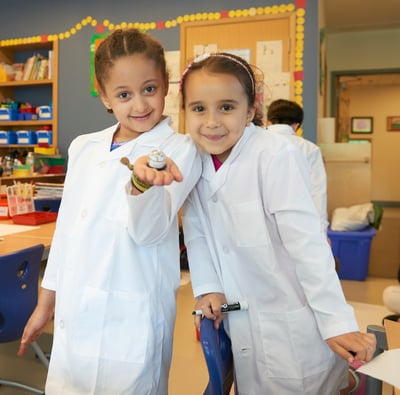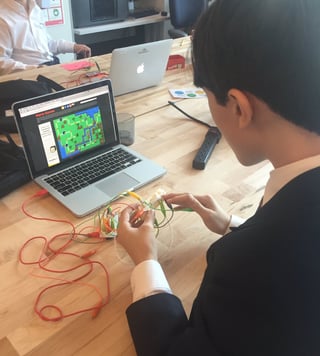PREPARING YOUR CHILD FOR COLLEGE-LEVEL THINKING
November 9, 2016 admin Education, GEMS World Academy Chicago, Parenting, College
![]()
Many parents begin planning for their children's college education shortly after their kids are born, if not earlier than that.
Quite often, the majority of that early planning revolves around cost — and with good reason. According to College Board, students attending in-state public universities will spend an average of $9,650 per year in 2016-2017 to cover tuition and fees. Students attending out-of-state public universities can expect to pay $24,930. Those who attend private schools spend an average of $33,480. These prices, which do not include room and board, will only get higher over time.
Given the significant price tag attached to a college degree, most experts say that it's never too early for parents to begin saving. Saving the entire cost is difficult, but any amount set aside will give parents and children more options as they consider which schools to attend. A 529 qualified tuition plan, which can help you save money by avoiding taxes on the money you contribute, is just one option available to parents. Here are some ways to make the most of a 529 plan.
 Cost, though, is just one part of planning for college. The other part is a bit harder to figure out: When, and how, can parents help children be "ready" for college — intellectually, socially and emotionally?
Cost, though, is just one part of planning for college. The other part is a bit harder to figure out: When, and how, can parents help children be "ready" for college — intellectually, socially and emotionally?
Some parents might assume that preparing students for the academic and social rigors of college is something that takes place when students reach high school, that "college readiness" comes down to choosing the right mix of extracurricular activities and classes (including A.P. classes), studying hard and meeting regularly with the school's college counselors.
To be sure, all of that is vital preparation, and parents should play a role in it. But experts say that helping a child become "college ready" is a process that can, and should, begin well before high school.
"College readiness is essentially about 'life readiness,' and parents have a key role in ensuring that children are equipped with independence, resilience and excitement for learning new things," said Kim Wargo, head of school at GEMS World Academy-Chicago. "The emphasis should be on helping children figure out what they love, how they learn, what excites them. Parents should encourage children early on to take risks in their thinking."
GEMS, now serving students through eighth grade with a high-school program launching in 2017, uses the International Baccalaureate curriculum, which places a premium on attributes like risk-taking and critical thinking. That approach to education helps children develop a problem-solving mindset, Wargo said.
"We need to get children excited not necessarily about specific career paths, but about their ability to solve problems and make their mark on the world," she said.
Andrew Slater, associate head of school at GEMS World Academy-Chicago, said a big part of college readiness is being able to overcome personal setbacks. Parents can help by talking to their children early on about failure and how to handle it.
"Students who have improved their academic performance over time are just as valued by college admissions offices as those who have maintained solid grades throughout," Slater said. "We need to train kids to be hard workers who are willing to deal with setbacks — allow kids to fail, and then challenge them by asking, 'Now what?'"
Both Wargo and Slater said that parents should work hard to help children discover their passions, both in and out of the classroom. Children who experiment and try different things as young learners — sports, music, technology, design, etc. — are likely to be focused, curious, enthusiastic and well-rounded students when they begin high school.
"As parents, we all have the precious opportunity to unlock the imagination and creativity inside our children's minds," Wargo said. "I believe that doing that plays as big a role in preparing kids for college as taking this class or joining that club. Universities, and the larger world beyond, need nimble and passionate thinkers. As parents, we can help our children answer that call."